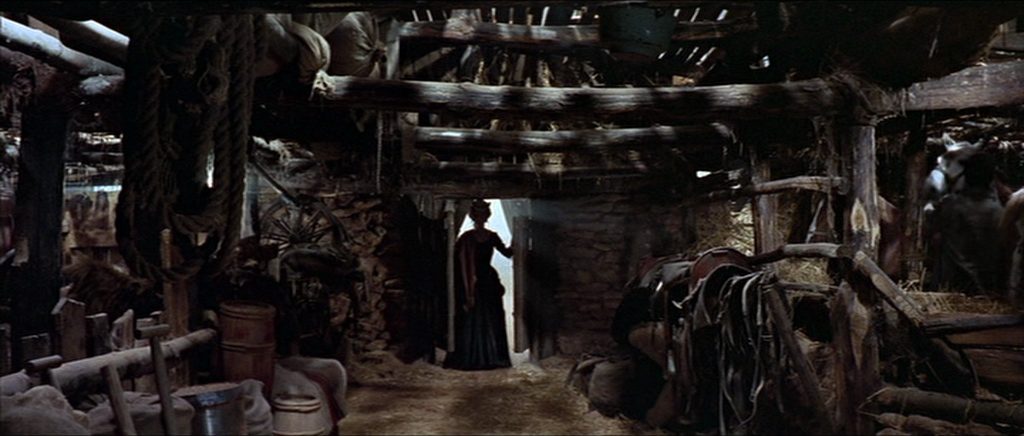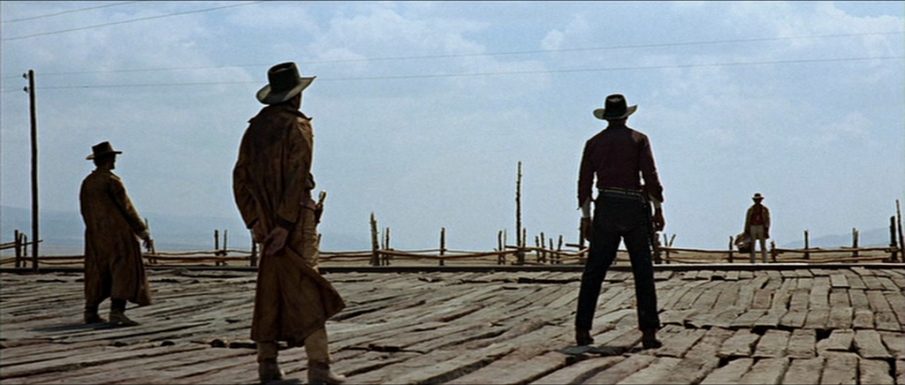If you haven’t seen the movie, don’t spoil it here — watch it first, then come back.
“Once Upon a Time in the West” is a classic film by Sergio Leone, made in 1968. It stars Claudia Cardinale, Henry Fonda, Charles Bronson and Jason Robards. The music is masterfully composed by Ennio Morricone, and the score alone makes the film worth watching.
Like peoples’ wrongful perception of many classics, watching a trailer might make it seem like its full of old tropes and a few cheesy lines, but that couldn’t be further from the truth. It’s an engaging, compelling story that not only speaks to the culture of the time of its production, but has many profound, thought-provoking themes as well as its raw entertainment and engaging dialogue.
The story centers around a widow, who agreed to marry a man out in the rough country of the Wild West. The husband and his children are murdered by a hitman and his crew, who work for the railroad that is trying to build its way to the ocean. Through a series of events, a local, wanted criminal and a mysterious harmonica playing man (who is also a gunfighting badass) set out to help the widow as the railroad sets their sights on her and her land.
It’s an old western that built many of the ideas we have of old westerns today, much like Leone’s other classic, “The Good, the Bad and the Ugly” did. And yet again, like many classic films, despite the fact that it set a standard for future generations of movies, some good and some rip-offs, it still has an air of freshness and originality to it. There is a reason why classic films are classics.

At its core, the film is about civilization and its place in the world. Many of the characters are coming from the “civilized” east, out into the Wild West where murder is commonplace, justice is rare and the environment will likely kill you before the bandits do.
And in that wilderness, civilization shows its weaknesses. There are several manifestations of civilization in the film, the most prominent of which is the tuberculosis-ridden railroad man with all the money in the world. He dreams of building his railroad through the old west and doesn’t care how many people the process hurts or kills (he says he cares, but he lets it happen anyway), just as long as it enables him to see the Pacific Ocean before he dies.
And yet his expansion of civilization isn’t a positive force in the film — it’s one of the main sources of conflict. And in the Wild West, the man with all the money, influence and technology under his belt is actually the weakest of them all. Not only does he have his physical afflictions, but he is morally corrupt as well. So when his crutches of civilization are stripped away, we realize that he has no physical power, and he has no honor or dignity either.
Like many spaghetti westerns, the primary theme is justice. But in many places in the world, we know that civilization isn’t always the answer to finding justice. And when lawlessness abounds, when the corrupt run the world around you, and when it seems as if the evil ones prevail at every turn — can justice even exist?
“Once Upon a Time in the West” says that it can. It says that justice is not a product of civilization, though civilization can certainly help it along. Justice is a product of those who toil in its service, be it in the confines of a court room or out on the streets of the Wild West with a revolver in the hand and a harmonica in the mouth.
Already have an account? Sign In
Two ways to continue to read this article.
Subscribe
$1.99
every 4 weeks
- Unlimited access to all articles
- Support independent journalism
- Ad-free reading experience
Subscribe Now
Recurring Monthly. Cancel Anytime.


COMMENTS